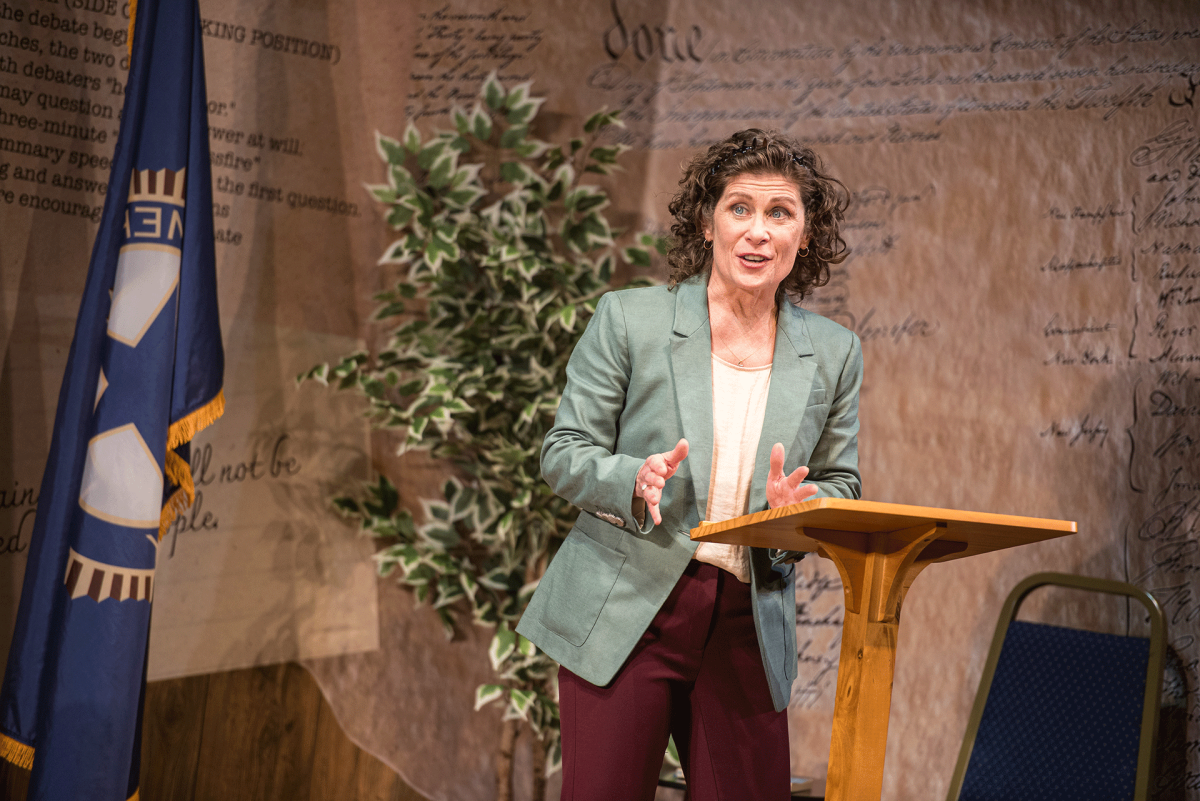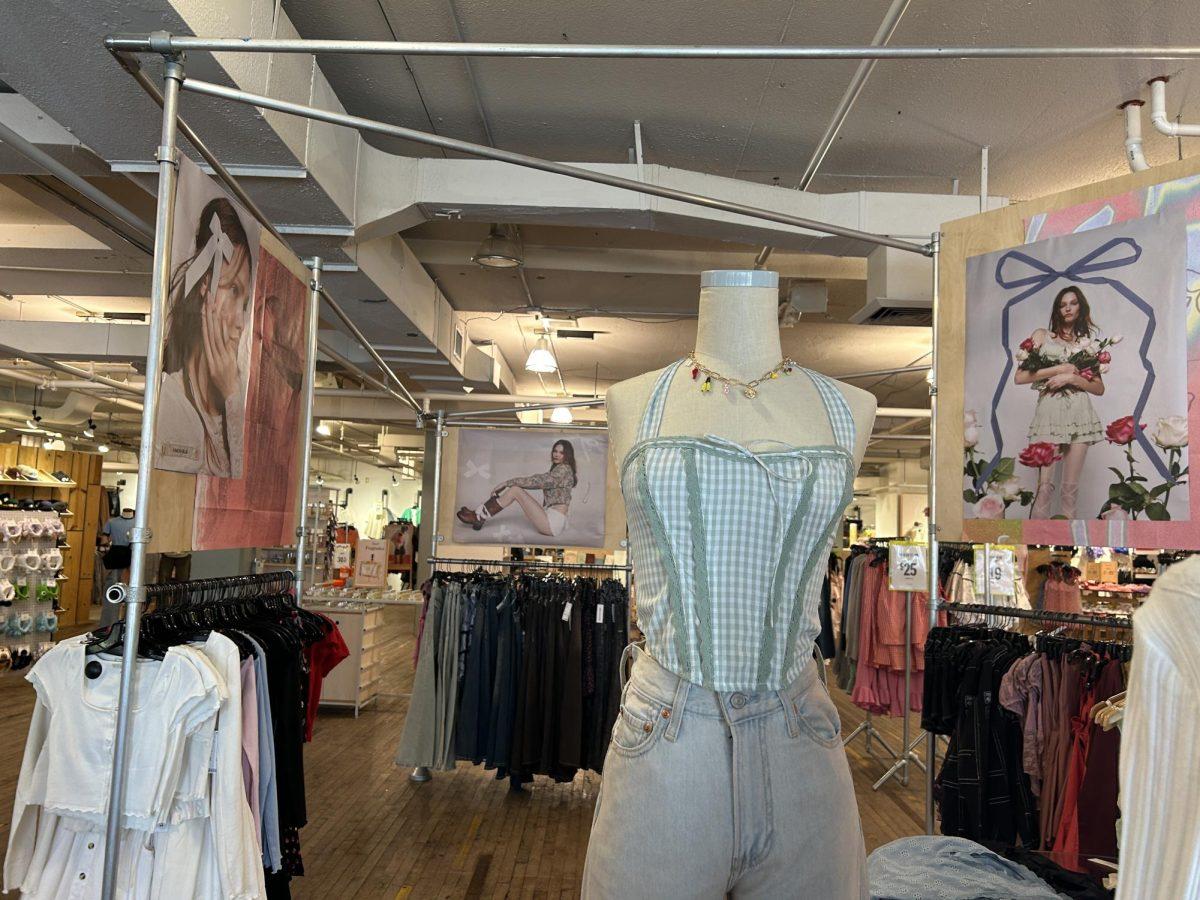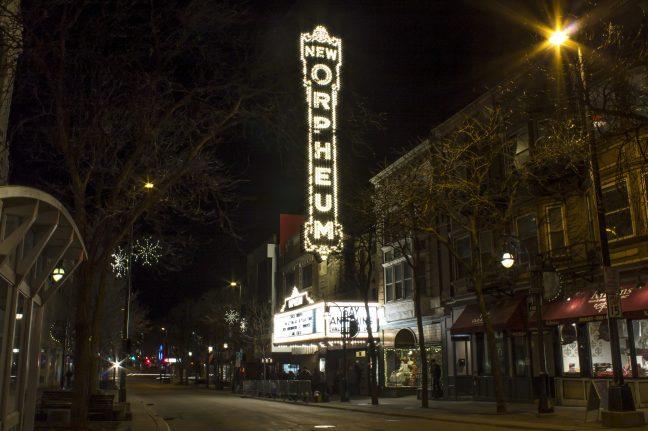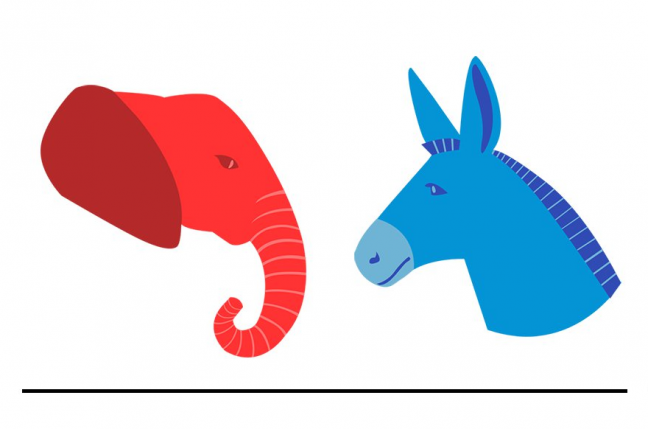http://www.youtube.com/watch?v=Q_L52eExAHU
Point by Katherine Krueger
When people call someone the “voice of a generation,” I cringe.
The cringe factor increases 10-fold when it’s used to talk about my generation. But because they’re using the trope to discuss “Girls,” an Important Cultural Force, I feel like I’m throwing myself in front of the wave of destruction that is popular opinion.
Let me get a few things out of the way. I don’t give much credence to critics condemning the show as racist and classist or those calling it the “Sex and the City” for a new age. Are you a Jessa or a Shoshanna? Hint: you’re none of them. For me, it’s just about it being bad television.
The online news and culture magazine Slate ran a piece in December that deemed 2012 the year of “hate-watching.” The writer defines hate-watching as drawing enjoyment from the sheer disdain that wells up when you watch a show.
“Girls” is my ultimate hate-watch.
This is the show that will make your kids hate you when they watch reruns years from now. They’ll believe that constant whining about how the world has left you fending for yourself in the adult world means you must have something important to say (a la “Girls” creator Lena Dunham’s character Hannah).
But “Girls” will also likely be held up as some kind of cultural artifact for what is meant to be coming of age in the Millennial era.
If Dunham’s purpose is to hold up a mirror to twenty-somethings trying to make it in the real world, I don’t like the reflection. Don’t get me wrong. I get the transition to “real” adulthood is rarely smooth – maybe it will involve contracting HPV, missing your own abortion appointment or accidently smoking crack at a Bushwick warehouse party. But because each of the characters is privileged and self-involved in their own special way, I’m left hating all of them. When Hannah fumbles at seducing her boss (at her first real job!) or Jessa marries the weird guy that tried to entice a three-way with her and Marnie, I’m left shouting at the TV. “WHY, WHY, WHY?!”
Watching the show feels a bit like sitting in the room with Dunham and her therapist, going over her project of the week in a quest to confront insecurities in a never-ending quest for validation. “DO YOU LOVE ME NOW, DAD?”
I like that “Girls” is honest. I also applaud Dunham for silencing her body-shaming critics and the myth that the leading lady must be stick-thin by putting her tits and muffin top on premium cable. But she has also managed to crack the formula for cranking out HBO gold, which masquerades as something that’s bold, relevant and innovative. The characters are talking about hashtags and texting with Emojis? FINALLY, a show I can relate to!!! The cumulative effect is a product that reeks of manufactured authenticity and fake edginess – full of sound and fury, but, in the end, signifying nothing.
I also find Dunham’s meteoric rise – browbeating us all with two Golden Globe wins and an absurd $3.7 million advance for an advice book – more than a little mind-boggling. “Girls” is honest and self-aware in a way that most television is not. But by creating a world that revolves around Hannah, the show becomes little more than Dunham’s artistic vehicle of choice for shouting, “I’m an individual!” It doesn’t feel like the voice of my generation.
So, here’s to a second season of warmed over cultural references washed down with crappy beer. At least Donald Glover’s in it this time.
I know I’ll be watching, but I won’t like it.
Counterpoint by Ryan Rainey
My animalistic instinct is to lash out and go for the jugular kicks every time I hear someone try to compare “Girls,” an honest and realistic show about New Yorkers and sex, to “Sex and the City.” The latter is a respected program that had a good run, but was limited to a very narrow target audience. The sex was glamorous and glitzy, as were the lives portrayed in the show. “Girls” creator Lena Dunham has cited “Sex and the City” as a minor influence, but she has made it clear that the program is not a clone, but instead a portrayal of a different group of people.
“Girls” is a show about most of the same topics with one capstone that makes it superior: It talks about more than sex. Sex isn’t in the title of the show. Sex isn’t the singular plot device of the show. Sex is portrayed, as it rarely is in television or movies, as the raw, awkward and frustrating experience it often is.
But there’s a level of generational significance to “Girls” that makes it such an important portrayal of its time in a way “Sex and the City” wasn’t. Its characters live in modest apartments in Williamsburg, Brooklyn; they’re self-impoverished twenty-somethings tired of the parents’ and older generations who never stop doubting their value. Hannah Horvath (Dunham) might be a pain in the ass, but she’s not the valueless, non-contributing zero some fans see. She’s as talented as you or me, and her story could be ours. Just like her, we’ve taken unpaid internships that should be paid, only to realize they do little on the path toward a “real job.”
The best scene from “Girls,” which might be one of the best scenes filmed for television in this very fruitful last decade, has nothing to do with Lena Dunham nor her character. Instead, it features Jessa (Jemima Kirke) and Marnie (Alison Williams) after they’ve ventured to the high-rise apartment of a bearded venture capitalist whose sexual frustration is explosive and eventually unchanged by the end of the evening.
The man (Chris O’Dowd) flips after Marnie spills a glass of wine on his $10,000 rug because he made an unwelcome pass at her breasts. And then the brilliance starts to show.
“Do you even know what it’s like to work hard”? he asks, as Jessa scoffs. “I’ve been under a lot of pressure. My whole life. To succeed. Daddy didn’t buy me this rug. Or this apartment … and then you come over … and then spill [wine] all over my gorgeous rug. And laugh about it.”
That’s all they can do: laugh. People like Hannah and Marnie – who just as easily could have lived in Logan Square, Chicago; Silver Lake, Los Angeles; or Madison’s own Willy Street – entered the world with privilege, but they entered the post-collegiate world to find that their talent and education meant nothing. And everyone older than them shoves it in their face in a sort of careerist schadenfreude that makes Gen-Xers and Baby Boomers feel superior to the children they birthed.
“Girls” deserves much of the criticism it receives for portraying only over-privileged white girls. But the show isn’t mournful of each character’s loss of entitlement, it’s celebratory. Even though Jessa and Marnie are laughing now, their creator is on her way to proving that twenty-somethings have more to contribute than irony and eye-rolls.
























